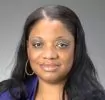In a decision that will affect the viability of patent licensing strategies now in use, the Supreme Court (Court) clarified the patent exhaustion doctrine. For more than 150 years, the Court has used the doctrine of patent exhaustion to limit the patent rights following the first authorized sale of a patented item. In Quanta Computer, Inc. v. LG Electronics, Inc., No. 06-937, Slip Op. (June 9, 2008), the Court unanimously reversed the U.S. Court of Appeals for the Federal Circuit's ("CAFC") decision that the doctrine did not apply to method patents and further did not apply because the sales were not authorized by the license agreement.
The Court's opinion contained three important holdings. First, the Court held that patent claims for methods may be exhausted by the sale of a product that embodies the patented method. Second, the Court clarified the test for the extent to which a product must embody the patent for the exhaustion doctrine to apply. Third, the Court discussed the details of the license at issue in a manner that provides guidance for drafting future agreements to avoid patent exhaustion.
Method Claims May Be Exhausted
The CAFC had held that method claims are not subject to the patent exhaustion doctrine. See, e.g., Glass Equip. Dev., Inc. v. Besten, Inc., 174 F.3d 1337, 1341 n.1 (Fed. Cir. 1999) (citing Bandag, Inc. v. Al Bolser's Tire Stores, Inc., 750 F.2d 903, 924 (Fed. Cir. 1984)). The Court reversed this categorical rule and held that method claims can be exhausted by the sale of a device that embodies the claimed method. Quanta Computer, slip op. at 9-11. In rejecting the CAFC's contrary decisions, the Court expressly recognized that an opposing rule provided an incentive for parties to convert apparatus claims to method claims during patent prosecution and thus have "an end-run around exhaustion." Id. at 10. "Such a result would violate the longstanding principle that, when a patented item is 'once lawfully made and sold, there is no restriction on [its] use to be implied for the benefit of the patentee.'" Id. at 11.
A Two-Part Test for Determining Whether a Sale Exhausts a Patent
A patent is exhausted by the first authorized sale of a product that embodies the patent. Sales of an incomplete product may exhaust a patent. In its opinion, the Court provided a two-part test for determining whether the sale of an incomplete product exhausts the patent rights in that product.
First, the incomplete product must have no reasonable use other than practicing the patents. In reaching this decision, the Court pointed to whether the invention embodied essential features of the patented invention or the inventive aspects of the patented methods. Id. at 16, 19. The Court also distinguished between practicing the patent and infringing the patent. Thus, the exhaustion doctrine is not defeated by the possibility of overseas sales that would use the patented technology without infringing the patent. Id. at 13 n.6.
Second, the incomplete product must "substantially embod[y] the patent" and "all but completely practice the patent." Id. at 14. Thus, sale of an incomplete product exhausts the patent if the only "step[s] necessary to practice the patent is the application of common processes of the addition of standard parts." Id. In reaching this conclusion, the Court distinguished the patents at issue from so-called "combination patents," where the only inventive aspect of the patent is the particular combination of known elements that are claimed.
In practice, this test will be difficult to apply in many situations. Whether a particular product "substantially embodies" the invention or whether the patent is a "combination patent" that falls outside the rules set forth in this opinion are likely to be the subject of future litigation.
Drafting Agreements
Turning to the details of this case, the Court analyzed the details of the agreements between the patentee and the licensee. While the Court determined that the licensee was authorized to make these sales, the Court's reasoning suggests that future licenses can be drafted in ways that avoid the application of patent exhaustion.
In particular, the Court held that the sales were authorized because the license agreement did not restrict the licensee's ability to sell the product in any way. The only requirement that was imposed on the licensee was that it provide notice to its customers that the patentee had not licensed the customers. The Court held that this requirement did not save the patents from exhaustion because (1) there was no evidence that the licensee failed to provide the required notice and (2) the notice requirement was not incorporated in the license, but was in a separate agreement. Id. at 17. The Court further noted that exhaustion only defeats an assertion of patent rights and does not necessarily limit other rights conferred by the license agreement. Id. at 18 n.7.
The Court's analysis suggests that a patentee carefully draft agreements to restrict the licensee's rights to sell. Such agreements can either avoid exhausting patent rights or facilitate breach of contract claims. Of course, a patentee's ability to impose such restrictions (and a licensee's willingness to accept them) depend greatly on the particular facts of a situation.
Summary
Because Quanta Computer means that patent rights can be more readily exhausted, a patentee may only get one bite at the licensing apple. This decision, therefore, increases the importance of a careful licensing strategy, with special attention to the drafting of license agreements.
The content of this article is intended to provide a general guide to the subject matter. Specialist advice should be sought about your specific circumstances.


